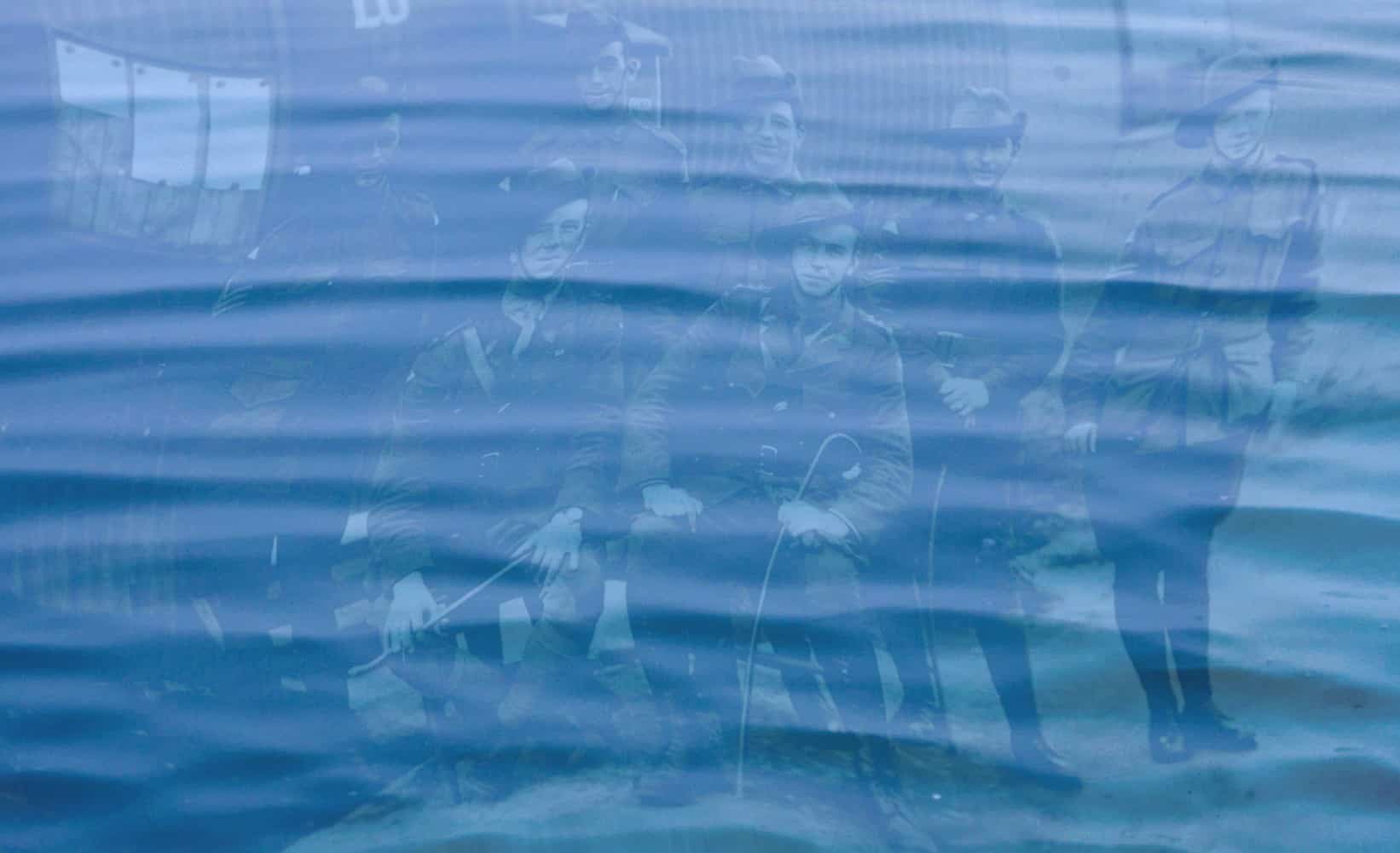We’re made of “Digger” stuff
M y father was in WWII. He went to Borneo, landed at Balikpapan.
Like most of those who went, he didn’t tell us much about the War.
But he did tell us one story.
They landed on the beach and because he was a Major he had a jeep and a driver.
The Japs had retreated but were still firing at the Aussies landing.
At the back edge of the beach was a small hut with its door open. As they drove past Dad noticed ropes hanging inside.
Now, Dad loved rope. And hoses and things you could “use for something”. He thought those ropes just might come in handy. So he told his driver to stop and he went to take a look. It was full of lovely huge hanks of rope all neatly hanging on their hooks. Just the thing for…something.
As he was looking around, getting ready to borrow one or two hanks of rope his driver came up and said,
“We don’t have time, Sir. We need to go on.”
So Dad sadly turned around, hopped in the jeep and drove off.
Less than a minute later the hut blew up.
An equally inquisitive soldier had entered the hut and lifted one of the booby-trapped hanks of rope.
And was blown to pieces.
What most amazes me about this story is that I and my younger siblings had not even been conceived. I owe part of the very fact of my ridiculously unlikely, extraordinary, magical and endlessly fascinating existence to that driver’s urging my father to eschew the rope. If he hadn’t, it would have been Dad who blew up and I wouldn’t be here.
Which blows me away every time I think of it.
So now thinking about ANZAC Day I think of the political profiteering that’s going on with the ANZAC legend.
It’s no longer a legend. It’s a myth.
It’s not only a myth; it has, as someone said, become secular religion with formal observances and complete with unquestionable dogma.
It’s now becoming increasingly difficult to engage with anything like the reality of the diggers’ experience. They are no longer real Australians. They have been beatified.
They inhabit the battlefields like flying saints, like angels. They were all as perfect then as they are portrayed now.
But they weren’t perfect. They were just Australians. Ordinary Australians. Mostly blokes. They didn’t really go to war because they had some highfalutin idea about the ‘ultimate sacrifice’.
It seemed like a good idea at the time. Everyone was doing it. You didn’t want to look bad amongst your mates. And of course, yes, it was ‘the right thing to do’.
They were larrikins, some of them. It was a cheap way to see the world. They were kids. It was exciting. It was an adventure. It was worse to stay than to go. The last thing they expected was to be killed. Death in a distant country seemed…distant. And when they were faced with the ugly, terrible, terrifying reality of what they had got themselves into, then they faced the challenge in the way that makes us all Australian.
And if these things are not true they are more true than many of the things people are making up about them.
What I find especially offensive is the way children — too young and protected to be able to understand even dimly the horrors of war — are groomed and trotted out to spout the formulaic, cliche-filled, propaganda-ridden mythology about the heroes who just wanted to sacrifice their lives for their country.
The men and women who fought for Australia were heroes. But they didn’t feel like heroes. That’s not how we are. We do what needs to be done. How much of what we do on ANZAC Day is not after all about them? How much is it about us and the warm inner glow we give ourselves?
There are real and moving lessons to be learnt from this day. About us. About them. About the world. About war. I fear what it is becoming; because it is a misrepresentation of how it was and who they were; because it removes us further and further from the truth. That does not serve us at all. We are learning false lessons.
So their memory has been hijacked by profiteering politicians who cynically wrap themselves in the flag and smear themselves with diggers’ blood. And I’m not just talking about Howard. I’m talking about all of them and their various favourite media platforms.
Politicians do what they think is the pragmatic, clever thing. The diggers just did what they thought was “the right thing”.
That’s a real Australian Value.
We like to think that we do “the right thing” – or that we would do the right thing if the situation arose, even if it’s difficult, inconvenient or costly. We like to think that’s part of the Australian character.
That is why John Howard is backing the wrong horse with his climate change rhetoric. He’s betting on Australians’ selfishness. And it would be wrong to say that Australians aren’t selfish. Of course we are. We’re human. But one of the ways we are particularly selfish is for our children’s futures, and their children’s.
Australians do see global warming as a serious – really, a deadly serious – problem. We know that something should be done, has to be done, and that we should do it and have to do it. We know it’s up to us right now. We accept that we need to show leadership.
So we’ve been sucking in our breath and getting ready for the sacrifices that we know we will have to make in order to do the right thing.
In fact, in a way we’re kind of looking forward to meeting a challenge. We’re a resilient people. We’re resourceful, we’re clever. We’re ready. We’re ready to show what we’re made of – “Digger” stuff.
And then along comes John Howard and tells us it’s not so bad, we should wait for others to go first, it will be too uncomfortable, it won’t work, it’s too hard. It’s like telling the Swans to take it easy in the last quarter because they’re 30 behind and there’s no way they can make it up, so they may as well save themselves for the next game.
That’s just not how we do things around here. We put our bodies on the line and give it everything we’ve got, even if it seems hopeless. Even if it seems pointless. Defeat is not failure. Look at ANZAC Day.
Failure is not having a go.
John Howard is selling us short. He’s telling us that we are less than we know that we are, less than we truly believe we can be.
And we don’t like it. We take it as an insult. And so it is. He is showing us that he is less than we are.
We won’t like it when Costello throws money at us in the budget and in the lead-up to the election, either. We will take that as an insult. And so it will be.
We are ready to do the right thing about global warming and if Howard can’t be the leader he needs to be, we will choose someone else who better understands who we are — descendants of Diggers.






